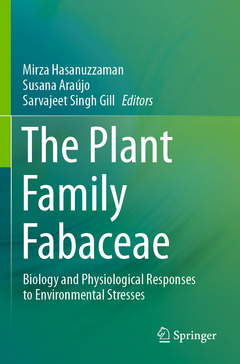The Plant Family Fabaceae, 1st ed. 2020 Biology and Physiological Responses to Environmental Stresses
Coordonnateurs : Hasanuzzaman Mirza, Araújo Susana, Gill Sarvajeet Singh

Provides most recent information with up-to-date citations and comprehensive literatures of recent advances on Fabaceae plant physiology
Includes all aspects of the physiology, stress responses and tolerance to abiotic stresses
Introduces important techniques that can be apply at field levels
Date de parution : 07-2021
Ouvrage de 541 p.
15.5x23.5 cm
Date de parution : 07-2020
Ouvrage de 541 p.
15.5x23.5 cm



